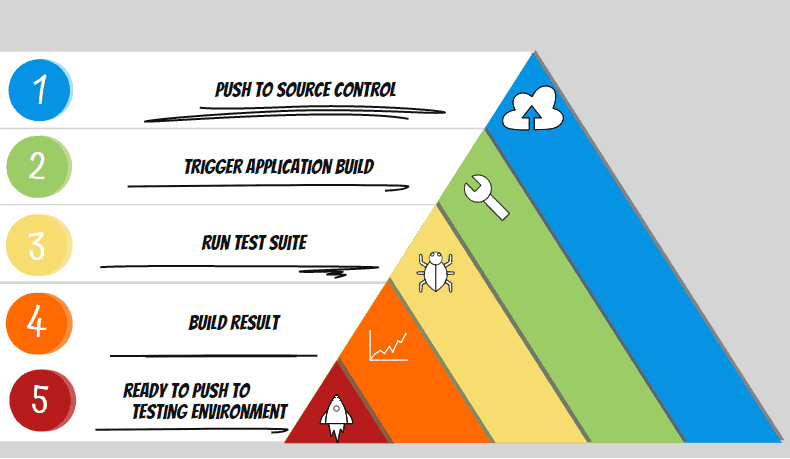The art of programming is filled with many different types of activities, but the most fundamental one is, of course, the act of coding. Another vital part of programming is testing the written code, a process known as unit testing.
In the unit testing process, a developer will create a separate module focused on testing specific parts of the source code and then run tests to ensure that everything works as expected. But not all developers think unit testing is something that you should do. Some even question whether the unit testing is worth the effort.
Unit testing ensures that small units of code work correctly. Although unit testing takes time and effort to set up, it is generally considered worth the investment. This is because it can save you a lot of time and money in the long run by preventing bugs from being released into production.
This post will go over the benefits and challenges of unit testing. You will also learn how to get started with unit tests in your projects.
Is unit testing worth it?
Unit testing is a crucial part of software development, and it’s essential to know how to make the most of it.
Unit tests are a way to ensure your code still works after you make changes. They can be a challenge to get right, but they’re worth the effort. By writing unit tests, you can ensure your code still works as expected and prevent regressions.
Most developers agree that unit testing is a good practice, but few do it.

Many developers will argue it’s essential to a good development process. But is it worth the effort?
Surely manual testing the whole application through UI is more comprehensive, right?
Well, it depends on how you see the process.
There are a few major drawbacks to unit testing that can make it a waste of time. I want to break down those drawbacks, so you can make an informed decision about whether or not your project needs unit testing.
The biggest drawback to unit testing is the time it takes to write and maintain the unit tests. You create unit tests at the start of the project and are then maintained throughout the project. As a result, they must be updated every time a feature changes or if the bug is fixed.
And that can be a real headache for developers.
What do senior developers think about unit testing?
To better understand what other developers think about unit testing, I surveyed 65 developers and asked them if they believe unit testing is worth the effort. Out of those surveyed, 86% said yes, unit testing is worth the effort.

What is more interesting is the working role and position of those developers. Some of the roles are:
- Senior software developer
- Solution architect
- Technical lead
- Technical manager
As you can see, the polled developers likely have many years of experience developing software.
So what does this tell us?
First, the developers seem to believe that unit testing is a valuable part of the development process. It is likely for those who unit test because they have seen the benefits firsthand. Unit testing can help to uncover errors early on and save time in the long run. It can also improve the code quality and make it easier to maintain.
Suppose you are working on a project within a development team. In that case, unit testing can also help to ensure that one developer doesn’t break code from another team member (a practice known as regression testing). It can also be great living documentation.
Overall, it seems that unit testing is worth the effort for many developers.
It may be worth trying if you are on the fence about whether or not to start unit testing.
Why unit testing is worth the effort

There are several benefits to unit testing.
Unit testing is an awesome way to catch bugs early
If you’re anything like me, you have a lot of experience with writing software. The only way to know if your code works is to run it. And as you make changes, you have to run it repeatedly. This is where unit testing comes in. Unit testing lets you automatically run your code in isolation, meaning that you can test each part of your program individually and determine whether or not it’s working correctly. Unit testing is also fast. Finally, it’s a great way to find bugs early and save yourself a lot of time and money down the road.
When you are unit testing, you don’t need to run your entire application. This can make it easier to find problems. With integration or UI tests, you often have to setup the database and all other services the application uses. When you use unit tests, you can even start writing unit test before you have production code for it. You can write a test and immediately run it. That means that you can avoid a lot of debugging and problem-solving.
Unit testing helps you to write better code
Writing software is an art as well as a science. To write high-quality code, you need to understand good coding principles. One of the best ways to do this is to write unit tests. However, many developers are reluctant to write unit tests because they fear writing them will slow down their progress.
While some developers may view unit testing as time-consuming, it can be beneficial in the long run. This is because unit testing can help you write better code overall. It forces you to organize code in small classes and inject dependencies into them. As a result, your code is likely to be more well-organized and efficient.
In addition, the tests also help you to refactor and improve your code. You can make small changes to your code and then quickly run your tests to see if everything still works as expected. That can be a great way to improve the overall quality of your code.
Also, if you have trouble putting your code under a test harness, this is a warning sign that the code may not be well designed.
Unit tests give you a safety net to fall back on
A unit test can catch problems during development. You can get feedback quickly. With unit testing, you can quickly solve the problem by writing a test. As you run the test, you will know if your solution works as expected.
You can also use unit tests to check your application before you deploy it. This will help you to catch a lot of problems before you have to deploy your code to customers. In addition, you can get automated feedback on your latest code changes by setting up a continuous integration system that will run the test suite on every code merge.

These three are just some of the benefits of unit testing. Check out this article for the complete list of why unit testing is beneficial for your application.
The challenges of unit testing
Unit testing is great for unit testing, but it is not a silver bullet. It can’t catch all bugs in the code.
When you test your code in isolation, it will not be able to detect problems with the interaction of different parts of the code. This is because the problem may not manifest until the code is integrated into a larger system.
Let’s see what some of the drawbacks of the unit tests are.
Limited scope
Unit testing is a great way to ensure your code works. But, it can only take you so far. Integration tests are also necessary to catch bugs when different code units are combined. Integration tests can be more difficult to write than unit tests, but they are essential for finding bugs that unit tests can’t catch.
If you’re not already doing both unit and integration testing, you should start doing so to ensure that your code is as bug-free as possible. In the end, to complete the test pyramid, use end-to-end tests.
Overmocking
Another problem with unit testing can be overmocking: testing the implementation details and using too many mocks in unit tests. This can lead to your tests being brittle and not accurately testing the business logic.
When you use too many mocks in a single test method, you are effectively testing the implementation detail of your code and not the functionality. That kind of testing can lead to your tests breaking when the implementation changes, even if the functionality remains the same. To avoid this, you should focus on testing the functionality of your code and not the implementation details.
Hard to start with unit tests in existing code
Unit testing can be hard to start within legacy applications. The reason being the code is not usually testable. In other words, it probably has a dependency on the outside service or database. You must sometimes spend time refactoring the code to have the testable code.
However, the benefits of unit testing legacy code can be significant. Unit testing can lead to more maintainable and reliable code base and help developers find and fix bugs more quickly. If you’re starting unit testing in a legacy codebase, you can do a few things to make the process easier. If you will make changes to the code to make it more testable, write characterization tests before changing the code.
Remember, you will be changing the working production code. Don’t make any bugs while trying to make it better. Next, identify which parts of the code are most important to test. These are usually the pieces of code that are most error-prone or used most often. Once you’ve identified the most important parts of the code, you can start writing tests for them. The separate article about legacy code has more action steps on how to improve the legacy code.
Conclusion
Unit testing is one of the best practices you can embrace, regardless of the project’s size. It allows you to test your code’s logic and ensure it works as expected. Unit testing is also a great way to check if your code is broken once you’ve modified it.
Writing your unit tests can be time-consuming. But it can also and can make it easier to debug your code.
However, if you’re writing code meant to be reused, unit testing is a must! This blog covered a few reasons why unit testing is important and helpful and what you can do to make unit testing easier.
